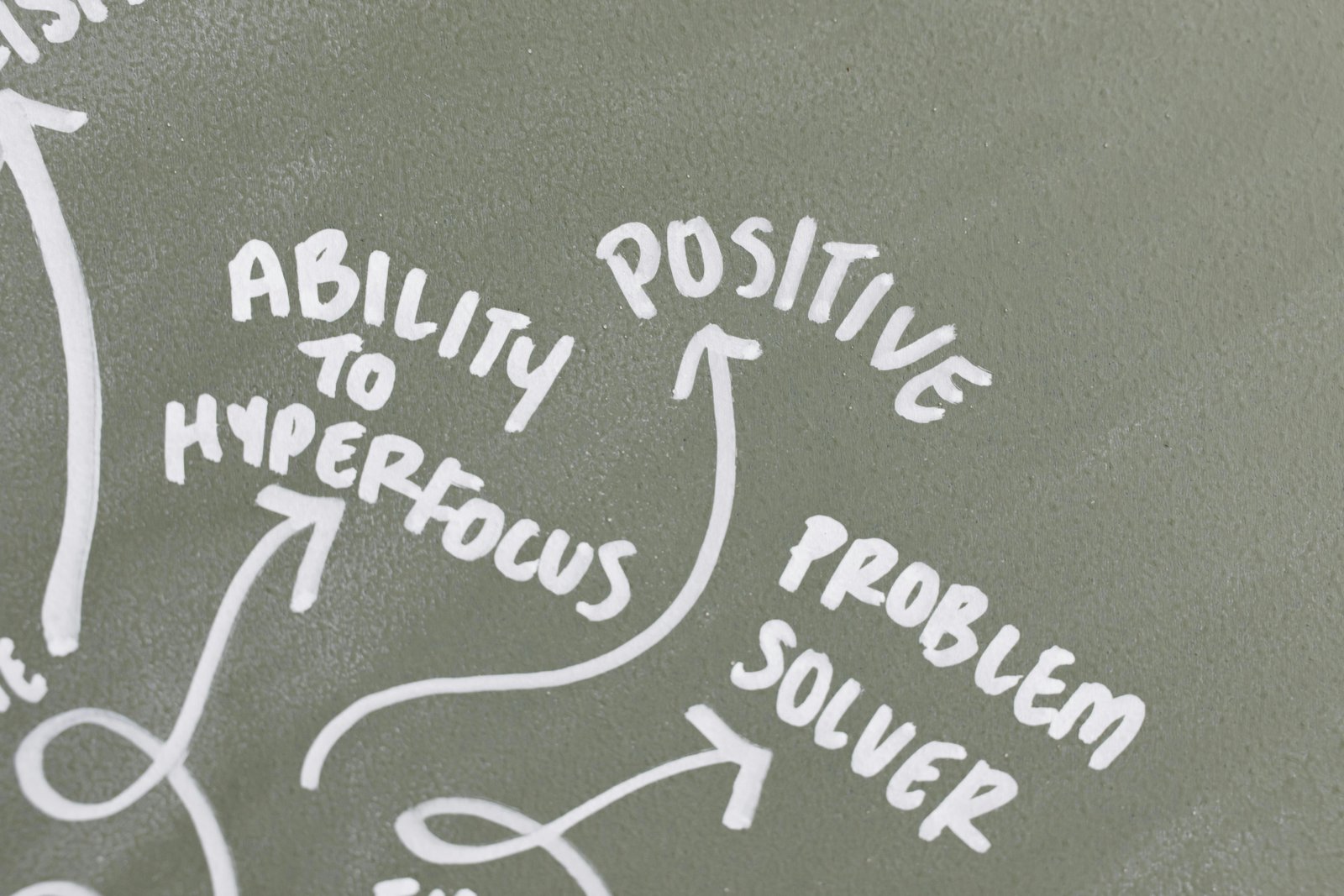Two roads diverged in a wood, and I—
I took the one less traveled by,
And that has made all the difference.
—Robert Frost
Frost’s “The Road Not Taken” points towards the importance of decision-making; the ability to make the right decision at the right time. It comes effortlessly and effectively to self-regulated individuals; an important attribute of a leader.
Self-regulation is the act of remaining calm in any situation and showing it through actions. It is also your ability to manage emotions and respond to situations accordingly and people around. Reacting to unpleasant things is easy; letting feelings and emotions fly may initially feel relaxing but that only lands you in unwanted troubles. However, like the poem, choosing the road less traveled – through self-regulation, we can make all the difference.
When you can manage your impulses and emotions, you are in better control of the situation instead of being the other way around. It helps you in effective management. Self-regulation is an expression and display of composure in every situation.

Understanding Self-Regulation
Self-regulation helps to check our emotions and reactions such as excitement, anger, frustration, embarrassment, and others. It holds the power to cope with certain emotional expressions and physical movements during stressful situations. In addition, self-regulation helps individuals stay focused and attentive during stressful times.
Often self-regulation is confused with self-control. Let’s understand that there is a subtle difference between self-regulation and self-control. Self-control is more of a social skill and we can compare self-regulation with a thermostat.
The thermostat is supposed to maintain a particular temperature in a room or place. It helps to monitor any differences in the temperature by alerting the moment when the room or the place needs to be cooled or heated. Similarly, we also need to be aware of the point where we should control our emotions, like these:
- Noticing and tracking changes in our environment
- Understanding our feelings and reactions
- Comparing our behaviour to our self-determined level of acceptable control
- Rectifying expression to regain composure
Self-regulation is not something you can learn quickly or that you are born with. It has to be developed with time through consistent efforts. Often individuals have trouble with self-regulation because they cannot find what helps them to calm down during emotional stress. Some individuals also struggle with disruptions of their routine and often such disturbances lead to frustrated outbursts.
Self-regulation is an indispensable skill for leaders, managers, or anyone in the decision-making authority. Let us walk you through the reasons why self-regulation is so important:
Better Decision
Practicing self-regulation, particularly in high-pressure situations, helps managers and leaders maintain a balanced perspective. They can make more objective and rational decisions by regulating their feelings and actions. They don’t have prejudices and plan things more strategically and effectively. It is also very crucial for achieving company goals even under difficult situations.
Effective Stress Management
It is difficult and practically impossible to avoid stress when you are in a position of authority. Officials who practice self-regulation have better control over situations and thus they can overcome such tricky situations instead of getting trapped in them. They may set an example and create a more resilient business environment by staying calm and focusing on solutions rather than on problems.

Impact on Leadership and Team Dynamics
Leaders are known for setting the tone of an organization, inspiring by example, and leading for the best outcome. Self-regulation opens up the doorway to effective and remarkable leadership.
Practicing Peace under Pressure
A manager who shows self-regulation by remaining calm in difficult circumstances sets a glaring example for the team. This behavior may inspire other team members to handle pressure and difficulties well, develop resilience, and perform well even under pressure.
Promoting Constructive Communication
Managers who are emotionally stable manage have their responses in their control. They communicate clearly, without judgemental bias, are respectful while exercising their authority, and listen carefully and without interrupting. Leaders master the art of self-regulation and pass on the same attitude to their subordinates by motivating team members to adopt similar attributes.
Developing Emotional Competency
Power is authority balanced with empathy, self-awareness, and emotional intelligence. Managers and other personnel with higher authority are compassionate and authoritative at the same time. The ability to self-regulate enables one to become exceptionally emotionally competitive.
For several significant reasons, self-regulation is an irreplaceable trait. An individual who is aware can regulate their emotions and responses and hence they are efficient in solving disputes and creating a favourable place to work.
Regulating Emotions
Being able to regulate one's emotions is helpful for managing conflicts. Individuals who keep their cool are more unlikely to react quickly or defensively. This controlled emotion prevents disagreements from becoming stronger while making it feasible to resolve disagreements in a more measured and rational way.
Rational Thinking
The ability for clear, unbiased thinking is strengthened by self-regulation. Individuals who are in control of their feelings are more capable of assessing a situation without prejudice, personal biases, or emotions. Objectivity helps one to understand the underlying causes of conflicts to find suitable solutions.
Constructive Communication
The ability for self-regulation helps one to look at any given situation with rationality, understand the purpose, and discover what would make communication more effective. Thus, communications made by self-regulated leaders and managers are most effective.
Strategies for Developing Self-Regulation
As mentioned before, self-regulation is a subtle trait that plays a dominant role in refined leadership skills. No one is born with it but can be inculcated with time and diligent practice. Let us guide you to adopt it at your own convenience:
Creating Self-Awareness
There are a few effective techniques for increasing self-awareness such as meditation, journaling, and having a heart-to-heart conversation with a person of the same vibe.
Meditation: Several researches and experimentations have demonstrated how being aware of your breath during meditation can expand your consciousness; and increase your awareness of your thoughts and emotions. Once you are aware of them you are in a better position to regulate them for the best of your interest.
Maintaining a journal: Journaling helps in processing emotions. Often we get entangled in our own emotions and nothing seems to help. This is when and where journaling comes to the rescue. As you write down your thoughts, you get to clarify, identify your priorities, set them in order, and thus deal with them one by one. Journaling, in fact, is considered a therapeutic practice.
Meaningful conversation: A therapist allows people to deal with negative behaviours or negative thoughts.
We should try to identify the reasons that cause negative thoughts. After that, we would be able to address those emotions and embrace changes for a healthier life.
Emotional Intelligence
Emotional intelligence is closely related to self-awareness or you may say that being self-aware increases EQ. An individual who is aware of his or her thoughts and emotions can channel, express, and make the best use of them. That’s exercising emotional intelligence. Interestingly, one with high EQ will also be able to manage the emotion with compassion and empathy.
Stress Management Techniques
Stress is an indispensable part of life; while you cannot always control circumstances, you can always check your response to them. You must minimize stress with the help of effective stress management techniques because stress can affect your well-being.
Contemplation brings short-term stress relief as well as long-lasting benefits. You may develop an affirmation that you repeat in your mind as you take slow deep breaths. Or, you might try to exercise awareness by being in the moment. Simply pay attention to five things what you see, hear, taste, touch, and smell. This will hold your focus on the present time and reduce worries and you don’t get easily triggered by stress.
Looking for more? Try to focus on your breathing; practice belly breathing which is inhaling till your stomach is full of oxygen and when breathing out from the stomach, pull up the carbon dioxide while exhaling. Mindful breathing can actually calm your brain and body.
Setting Goals and Boundaries
Professional Boundaries are defined limits for your colleagues and other professional acquaintances. Healthy boundaries help you strike a balance and avoid conflicts and resentment. Those who have the ability to manage their emotions and behavior are more adept at managing stress, conflict, and success. This is why drawing healthy boundaries can help you develop self-regulation.

Self-Regulation and Time Management
As we talk about self-regulation, we cannot leave aside discipline. You ought to start with it for regulating yourself; focus and consciously prioritize tasks, avoid procrastination, and strike a balance between work and personal life.
Prioritizing Tasks
When you schedule tasks in a day with a deadline, it helps you focus on your priorities. It is comparatively easier to follow a schedule to get the tasks done instead of chasing the need to complete tasks; that can make things more hectic. You learn to manage time with self-discipline; it pushes you to take control of your own time.
Avoiding Procrastination
As you prioritize tasks you automatically commit to finishing tasks according to their order of importance and thus not procrastinate. Allow yourself to enjoy a sense of accomplishment over completing it.
Balancing Work and Life
Self-regulation involves continuously monitoring one's external and internal stimuli; self-control is very important for effective interpersonal connections, achievement, and happiness in general. When you strike a balance between your personal and work life it can boost your productivity and even help you to stay healthy. Prolonged working hours lead to depression, diabetes, heart disease, memory issues, and others.
Measuring the Effectiveness of Self-Regulation
By now you have gained a profound understanding of self-regulation, its importance, how to inculcate it, and others. What about verifying its importance? You must measure the effectiveness of self-regulation to reaffirm or confirm its importance. You can do that either through performance metrics or through ‘feedback and reflection’ or both. Let’s dig in.
Performance Metrics:
You can measure performance management in the following ways:
- Set measurable objectives and key results and individual goals to gauge employee performance.
- Define milestones that would mean success for your organization;
- Evaluate results and work on scopes of improvement.
- Benchmark best practices for performance management.
Feedback and Reflection:
In order to use feedback and self-reflection effectively, plan ahead by setting goals, standards, values, and feedback sources. Keep a check on your performance and don't hesitate in asking for feedback. After you finish a task or project, review your performance and reflect on what went well and what can be improved.

Overcoming Challenges in Self-Regulation
When you try to adapt a new habit or adjust to something you cannot deny the challenges that come along. So is the case with practicing self-regulation. You can expect and must prepare to overcome the following challenges while trying to excel in self-regulation.
- Emotional control: Often it is difficult to control emotions and sudden outbursts. Unfortunately, it can create several other issues with behaviour.
- Stress: Acute stress can destabilize your mood and create mood swings. It prevents one from focusing and even disturbs efforts for self-regulation.
- Fatigue: Tiredness or feeling physically or emotionally exhausted can affect cognitive ability leading to a lack of self-regulation.
- Lack of self-awareness: A person lacks self-awareness then it would be difficult for the person to identify feelings, thoughts, and behaviour.
Inflexibility: The person who is reluctant to embrace change will find it difficult to practice self-regulation.
Like every challenge, you can overcome the difficulties to adapt self-regulation. You can choose anyone that appeals to you.
- Mindfulness: It allows people to understand what activates their emotions and thus you can figure out how to control them better.
- Stress management: Engage in exercises, meditation, and sufficient sleep to relax well and develop impulse control.
To excel as a professional you must work on developing your edge and thus work on self-regulation which begins with the development of emotional intelligence, self-awareness, self-discipline, and more. A self-regulated professional has the upper hand in better decision-making and is result-oriented, unbiased, and effective. Self-regulated individuals are also a great example for a team, an asset for effective and prompt conflict resolution, and a great source of motivation for the team.
Self-regulation is a key trait in leaders and also the key to successful management for an organization. Individuals with profound self-regulation knowledge and features enjoy an edgy professional reputation and are a great asset to the company.


